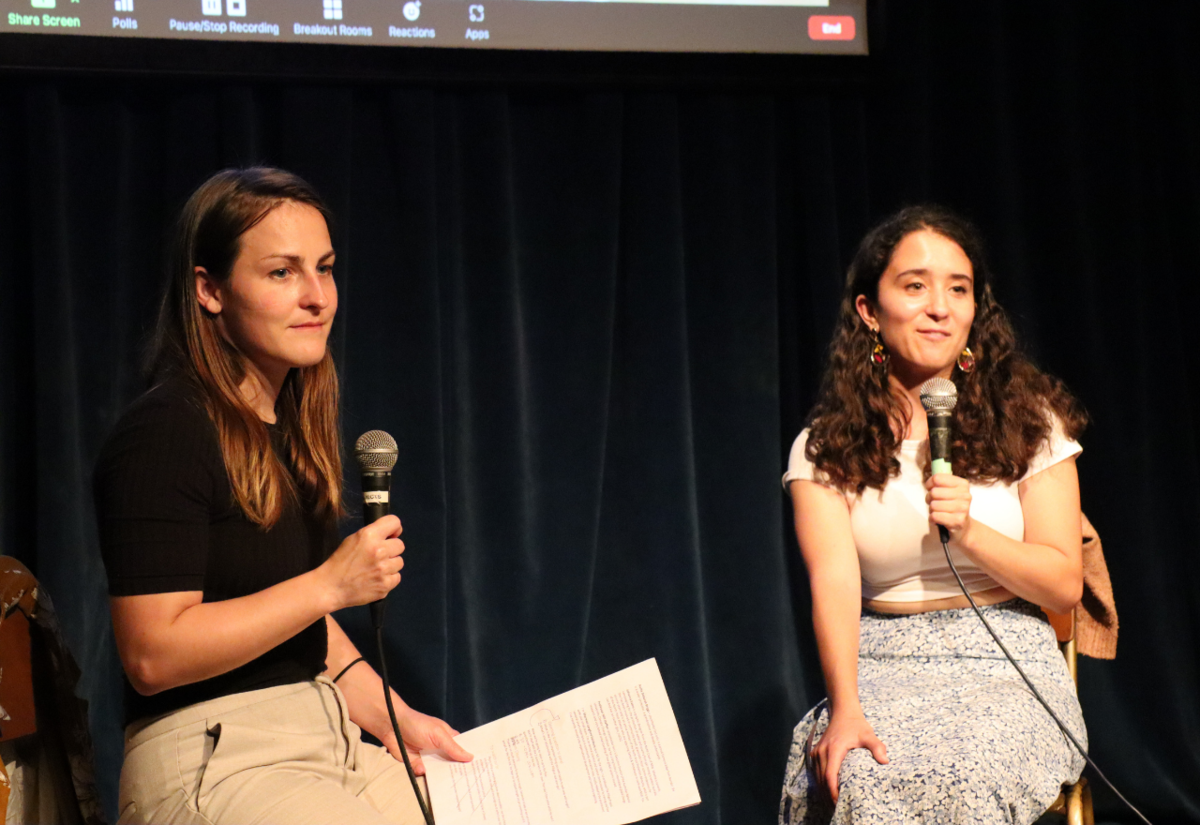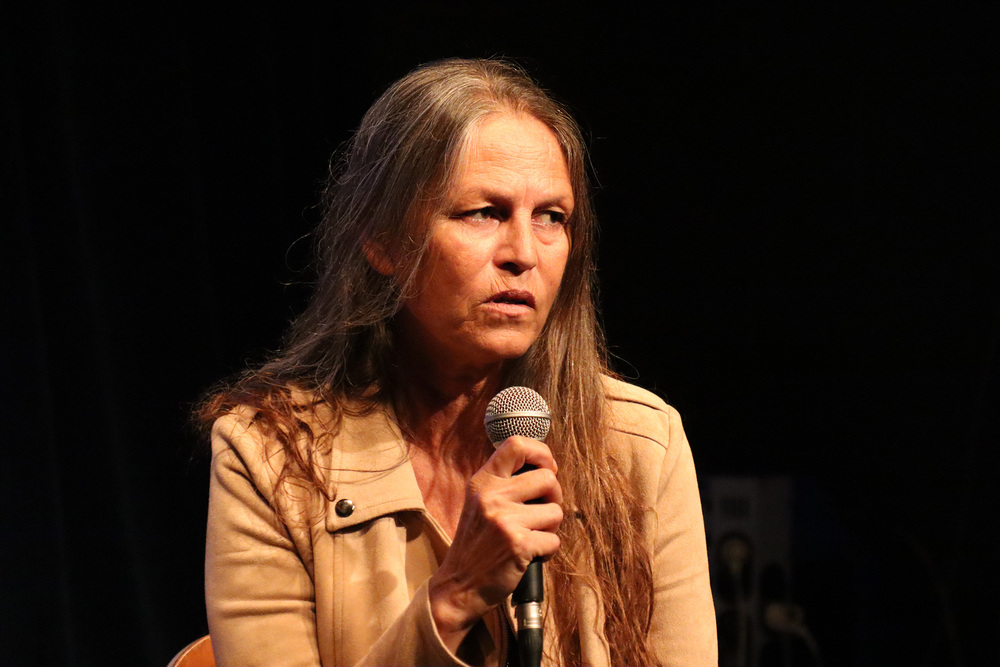New documentary brings Pilliga threat to urban eyes
Claire Brownlie
18 February 2022, 2:24 AM
 Shannon Langford Salisbury and Natalie Haddad, the respective producer and director of new documentary 'The Pilliga Project' hope their film will open people's eyes to the impact of the Narrabri Gas Project on regional water sources. Image by journalist Paul Gregoire.
Shannon Langford Salisbury and Natalie Haddad, the respective producer and director of new documentary 'The Pilliga Project' hope their film will open people's eyes to the impact of the Narrabri Gas Project on regional water sources. Image by journalist Paul Gregoire.'The Pilliga Project', a documentary directed by Natalie Haddad, explores what she says is the imminent threat of the Narrabri Gas Project to the environment and community.
The Santos Narrabri Gas Project was approved by the NSW Independent Planning Commission (IPC) in September 2020 and by the Federal Minister for the Environment in November 2020.
The proposed project would see at least 850 gas wells being developed in the Pilliga over the span of 25 years.
The NSW Government has backed the project, with assurance that the project will lower domestic gas prices and provide jobs for regional NSW residents.
In January 2022, a Santos update says that with no further appeals from the IPC towards the project's development, the group can progress with their appraisal process.
Natalie Haddad's involvement with environmental activist groups in Sydney led her to visit the Pilliga Forest to see the extent of the Narrabri Gas Project.
"When we went to the forest and saw gas fields, and I saw poisoned forest and how fragmented the forest was, it just struck me to the core." Haddad said.
The area of 'poisoned forest' is the result of contamination incident at the Bibblewindi water treatment facility in 2014.
The area is now fenced off, however, Northwest Protection Advocacy (NWPA) members featuring in the film demonstrate how tar-like soil still remains close to the surface.
The documentary interviewed Narrabri locals, a Santos worker, traditional custodians, farmers, experts in gas extraction, hydrology and climate change.
"People were very eager to share how they feel about it. And it was the majority of people I spoke to that were against the project," Ms Haddad said.
Gas giant Santos is known as a generous investor in the regional towns close to their gas extractions sites, providing job and community development opportunities that a rural area may not have access to, and Narrabri-based organisations have benefited from an injection of sponsorship in recent years.
"We're serious about our ability to work with local communities and we're very proud of our ability to do that, and we will continue to push our belief in that space." said Santos chairman Keith Spence in 2018
There is evidence of strong support in the Narrabri area, including Narrabri Shire Council, the local Chamber of Commerce and a good proportion of local farmers.
"It does create a lot of jobs. Not going to lie there is a lot of people in this town that benefit from it. I just moved down here recently, and I've got a job," said an anonymous Santos worker interviewed in the documentary.
However, the enthusiasm is not shared by many people across the north west and beyond.
In 2020 a record 23,000 people signed a petition defying the proposed project and the project received an unprecedented number of submissions when their Environmental Impact Statement (EIS) was released by NSW Planning.
At the current stage of the project, the NWPA has raised concerns about certain data that has not yet been released, despite agreements to make the information public.
"The community still has not seen the results of the GISERA study into faulting in the Pilliga. This is years overdue and we still don’t have data from the NSW Government-installed Water Monitoring Bores in the region," said NWPA volunteer Johanna Evans.

ABOVE: Gomeroi elder Aunty Deborah Briggs - a local indigenous women from the land where the Narrabri Gas Project is located - speaks at the documentary launch in January. Image by journalist Paul Gregoire.
'The Pilliga Project' documentary premiered in late January in Redfern to a 40-person audience, due to COVID restrictions. The documentary has collated over 740 views online.
Haddad explained that it was important to show the film to a city audience, who she feels have been "sheltered" from the issue.
"When we first screened it in Redfern for a Sydney audience, most people's reactions were that they had no idea that this was even happening," Haddad said.
"And also they had no idea that gas could have this effect on the water table."
Natalie Haddad says that people should speak to their community members to raise awareness about the gas industry.
"The gas industry kind of relies on this topic being taboo, but we should talk about it because this is your water being affected. This is all of our water."
'The Pilliga Project' is now available to the public to watch online.




